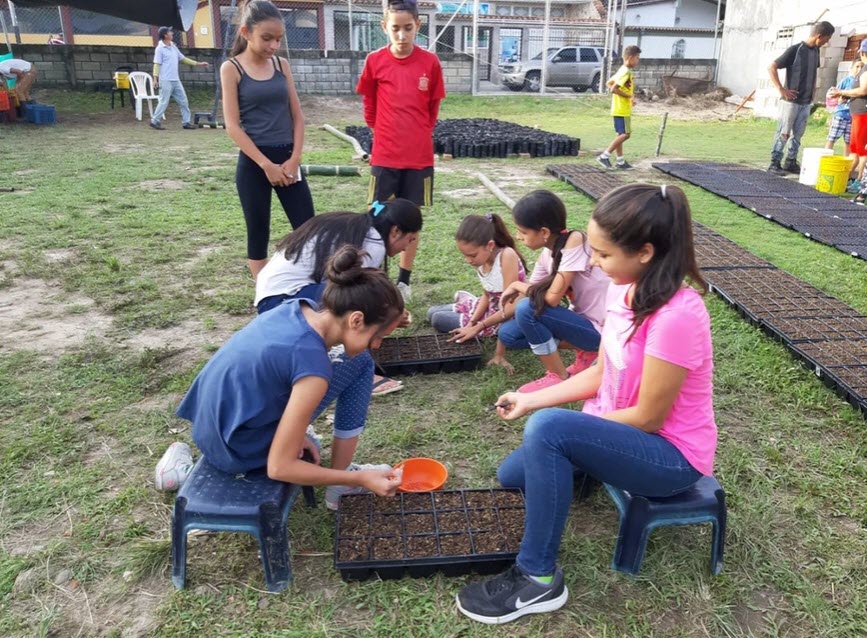Giving in Times of Disaster

He has told you, O man, what is good; and what does the Lord require of you but to do justice, and to love kindness, and to walk humbly with your God? (Micah 6:8, ESV)
These are times in which our generosity toward others is being tested. This worldwide pandemic has brought to light many people in need of our compassion. The great majority of us live around people who are hurting, and every day we have to make decisions on how to effectively share the resources God has entrusted to us. I am writing from my experiences with respect to how I am coping with the question: How can I wisely help others in a time of misfortune?
Do not neglect supporting your local church. “Better is a neighbor who is near than a brother far away” (Proverbs 27:10). “Therefore, as we have opportunity, let us do good to all people, especially to those who belong to the family of believers” (Galatians 6:10). I am confident that now more than ever, we should step up our financial support to our local church. As the family of Christ, we must make sure our local congregation keeps functioning well and has all that it needs to fulfill the Great Commission. Every local congregation, regardless of its size, has the historic responsibility to stay open and function well so the message of reconciliation can be shared. There are millions of people who are open and seeking beyond themselves, eager to hear the good news of redemption. The Christian Church has the historical challenge to make the story of the “Good Samaritan” their story. It is our obligation to ensure that our local Christian fellowships have adequate resources during this emergency to step up before our neighbors in need and, with words and deeds, demonstrate the message of mercy and redemption through Christ.
Do not be overtaken by guilt. ‘‘If anyone has material possessions and sees a brother or sister in need but has no pity on them, how can the love of God be in that person?” (1 John 3:17). During this pandemic, I am directly supporting a number of struggling families. Almost daily, I receive other valid requests for assistance; in which, with pain I have declined helping. I have been encouraged by the prayer written by theologian Reinhold Niebuhr, “Lord, grant me the strength to accept the things I cannot change, the courage to change the things I can, and the wisdom to know the difference.” This crisis will bring many challenges with regards to making decisions about who should receive our personal assistance. I believe there will be times in which we will have to ask the Lord to help us to peacefully accept that our generosity has limits. However, if God has entrusted us with resources, in spite of so much future uncertainty, we must have the courage to continue supporting those in need, relying on God for wisdom to discern what we can and cannot do for others. “Each of you should give what you have decided in your heart to give, not reluctantly or under compulsion, for God loves a cheerful giver” (2 Corinthians 9:7).
Strive to give towards self-supporting strategies. During my service as a humanitarian worker, I learned that the most important assistance I can give to people in need is that which yields self-sustaining benefits. The people to whom I now provide support during this difficult time include three single-parent families plus five other families. Part of my giving, besides assisting with everyday needs, has also been directed assistance for projects that would bring some self-support. They receive sewing supplies, wood and tools to build cabinets, a used vehicle so a husband could start a taxi business, or garden supplies and seeds. We see this in the humanitarian work I have done as well:
- During Hurricane Mitch, a pastor and I were flown in a couple helicopters with our humanitarian assistance supplies into the most remote jungle of Honduras. We had taken with our supplies 1,000 fishing kits. The tribe chief said, “Out of all the donations you brought to us, the most valuable are the fishing kits, because now we can go to the river and bring home food.”
- Recently, in Venezuela, I directed a relief project which involved constructing a greenhouse capable of producing close to 25,000 seedlings so people can grow their own food in their gardens.
- After Hurricane Felix made landfall in Central America, I was flown on a cargo helicopter into the most remote northern Nicaraguan village. I was able to deliver hundreds of tools so people would be able to start rebuilding their homes. The next day when the helicopter came back to pick me up, as we flew over the village, we could see dozens of people waving their tools to show us they had begun rebuilding.
- In Thailand I visited a community that had been badly damaged by the 2004 tsunami. I was very impressed by its efficient reconstruction. I asked a community leader what was the most valued assistance they had received from humanitarian agencies. His answer: tools.
- I participated in building greenhouses in cold and remote mountains in Peru and enjoyed seeing the pride in which these Inca descendants were harvesting their own produce.
- I was part of a humanitarian relief team who assisted in Haiti after the earthquake. My own observation is that more could had been done by investing in initiatives that would bring self-sustainability to this deprived country.
Establish a “giving” budget. This was actually my late wife Pam’s initiative. She set up something which she called “The Giving Account.” Pam would faithfully set aside a percentage of our personal income in order to be able to assist friends or charities. At one point, a late relative saw how effective our giving account had become, and she became engaged in refilling the account. Like in the story of Elijah and the widow, our family’s “Giving Account” has never gone empty. “For this is what the Lord, the God of Israel, says: ‘The jar of flour will not be used up and the jug of oil will not run dry until the day the Lord sends rain on the land.’” (1 Kings 17:13b).
Engage others. Recently a person approached me with an urgent and valid need. However, his financial needs were way above what my personal giving budget could afford. I prayerfully approached a good friend who I knew would have the resources to assist, and I put him in touch with this family. My friend was eager to come on board and met their need. It is quite possible that you may encounter a need much greater than what you can afford to support. You may want to approach someone you are comfortable asking to step in. The good Samaritan recruited the innkeeper to go beyond his regular workload and at the request of the good Samaritan, he became a health-care provider looking after the recovery of the wounded neighbor. “Whoever is generous to the poor lends to the Lord, and he will repay him for his deed” (Proverbs 19:17).
When possible, become directly involved in your giving. I recommend that donors become directly involved. Last year I got to know a missionary family ministering in a remote Venezuelan native community. Their home was in desperate need of maintenance, and the community was in desperate need of humanitarian assistance. I felt compelled to assist. Travelling to this distant village involved driving for more than 12 hours with our relief supplies through one of the most dangerous Venezuelan roads. We also had to deal with threats of imprisonment for bringing humanitarian assistance. After two mission trips to this community with my Venezuelan relief team, we were able to help fix this missionary family’s home, plant gardens, and provide medical and food assistance to dozens. We left with an enormous gratification that what we had done for this family and this community was done well. “She opens her hand to the poor and reaches out her hands do the needy” (Proverbs 31:20).
Nearly 15 years ago my family and I came across a talented cabinetmaker who had fallen into hard times. His name is Jose. My wife and I agreed to assist this man and his family over a period of time. We helped to purchase machinery for Jose’s shop: table saw, planer, router, drills, wood, hand tools, etc. Every time I travelled to North America or Europe I would always shop for tools that would help enhance Jose’s cabinet-making work. Eventually Jose became more established in his business. He also became an enthusiastic disciple of Christ and a very effective evangelist.
When I visited Jose’s wood shop last week, I found him and his family plus two other men busy packing food supplies to be donated to neighbors. Without referencing my name, Jose said to the two men helping, “During the lowest part of my life someone came and was generous to me and my family. I often felt I did not deserve such generosity. I became persuaded of God’s unconditional love because in spite of all my shortcomings, when I was in need someone was generous.” “Blessed are the merciful, for they will be shown mercy” (Matthew 5:7).
Nery Duarte
Nery Duarte is a member of International Baptist Church, San Jose, Costa Rica, and a missionary with Latin America Mission where for the past 30 years he has participated in relief/humanitarian operations throughout Latin America.

